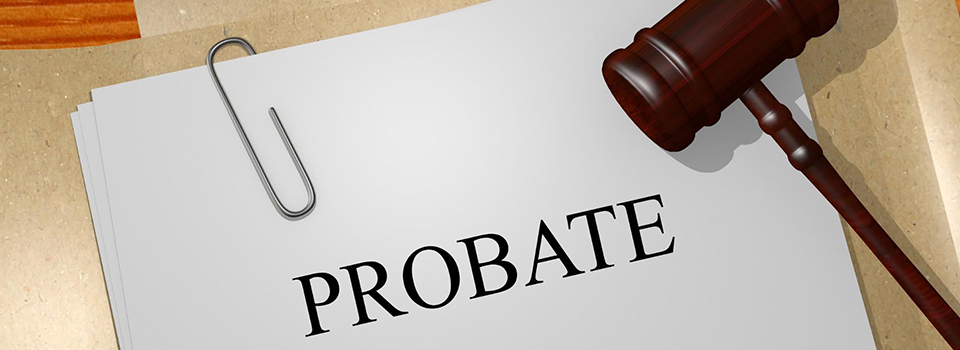No one likes to think about the passage of time and the inevitability of death. Unfortunately, at some point we will all have to deal with the passing of a loved one. When that happens, the suffering that one feels is often exacerbated by the legal issues that come with dividing assets. Terms like “heirs,” “devisees” and “joint tenancy with right of survivorship” can make any person with a lack of legal knowledge confused and scared. Despite its connotation, probate isn’t as scary as you might think.
What is a Probate
Although it sounds like a complicated legal term, in reality, probate refers to the process of transferring assets from a deceased person to his or her heirs. The Personal Representative (you may know the older term Executor or Executrix) named in a Last Will and Testament is appointed by the Court to oversee the process of collecting the assets of the decedent, paying any liabilities and dividing the assets.
When is Probate Required?
Many people believe they need to hire an attorney immediately after a person’s death but that is not necessary unless some pressing legal matters are present. The probate process is lengthy, not a race, so you can take time to mourn and heal your pain. After a reasonable time for mourning, the process should proceed.
Probate is required when all the assets owned by the deceased person are in their name alone, or there is a Last Will directing the distribution of assets. The purpose of the probate process is to pay the expenses and debts of the decedent and transfer and distribute these assets from the name of the deceased to their heirs.
A Last Will and Testament is a statement made by an individual prior to their death naming a Personal Representative and directing how and to whom these assets should be transferred. However, if there is no will, state law dictates how the assets of the deceased will be distributed according to the State Law of Intestate Succession.
Even if you are legally the heir of an estate, either by will or by law, and are entitled to an asset, those assets may have to pass through probate court before they can be passed to you. For example, valuable personal belongings, cash, and real estate are often subject to the probate process.
Why You Might Want to Avoid Probate If Possible
Although straightforward, the probate process can be time-consuming, expensive and public. Fortunately, there may be ways around this in certain instances. With years of experience in handling probate, we recommend always consulting with a professional to see if there is a simplified way to move forward.
How Can You Avoid Probate?
Avoiding probate is possible with timely and careful estate planning. A skilled estate planning attorney can discuss your specific circumstances and recommend a variety of methods for transferring your hard-earned assets as you desire. Some possibilities include:
- Creating a Trust;
- Investing in a life insurance policy;
- Deeding real property with a joint tenancy with rights of survivorship or tenancy in common.
In Tennessee, no estate tax exists, but federal taxes come into play for estates higher than $11.4 million.
What’s the Best Solution?
The best way to determine if it is necessary to probate an estate – or if it’s possible to avoid it – is to consult with an experienced probate attorney.
If you need someone you can trust, don’t hesitate to reach out to us. We’ve helped countless customers figure out the probate process and we are more than happy to offer you a free consultation.


Leave a Reply
You must be logged in to post a comment.